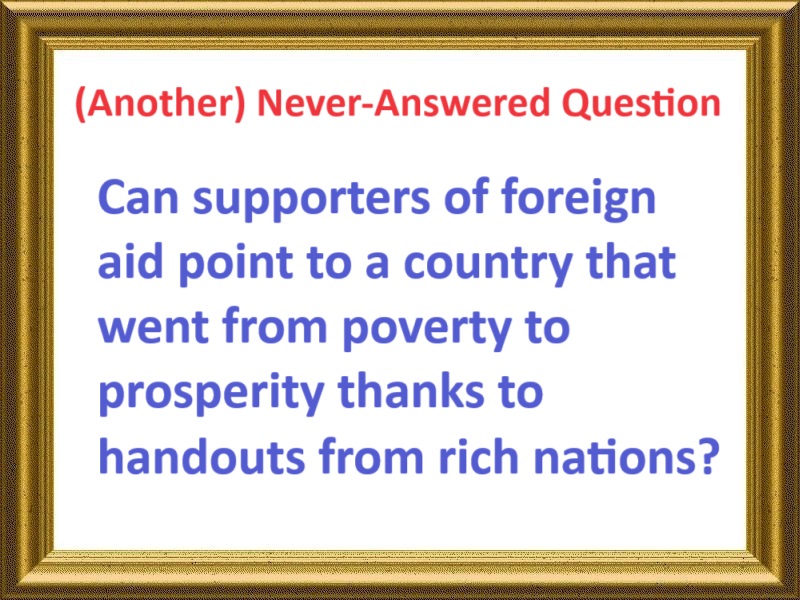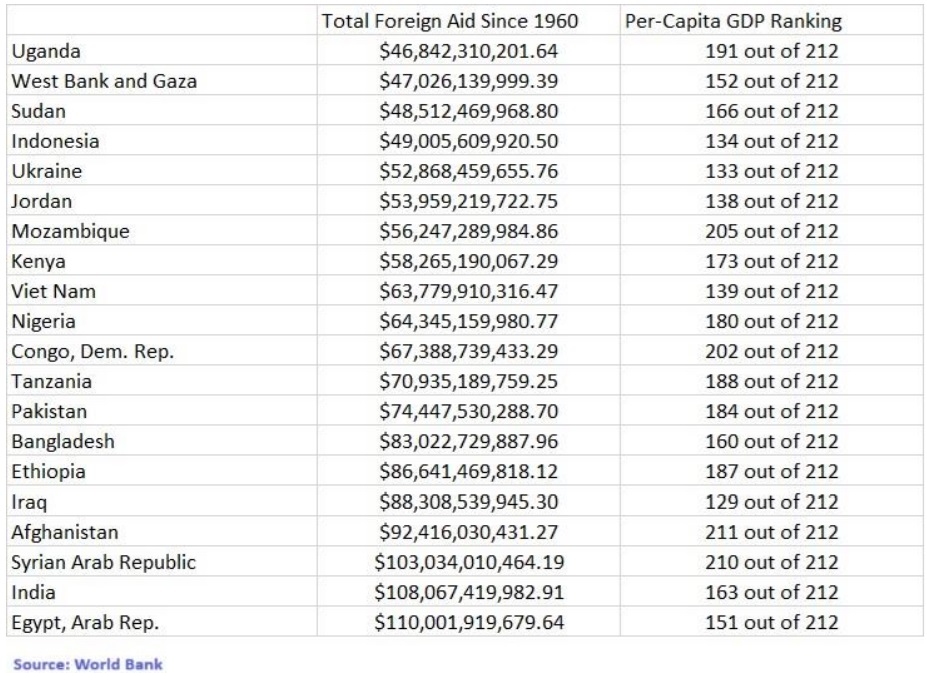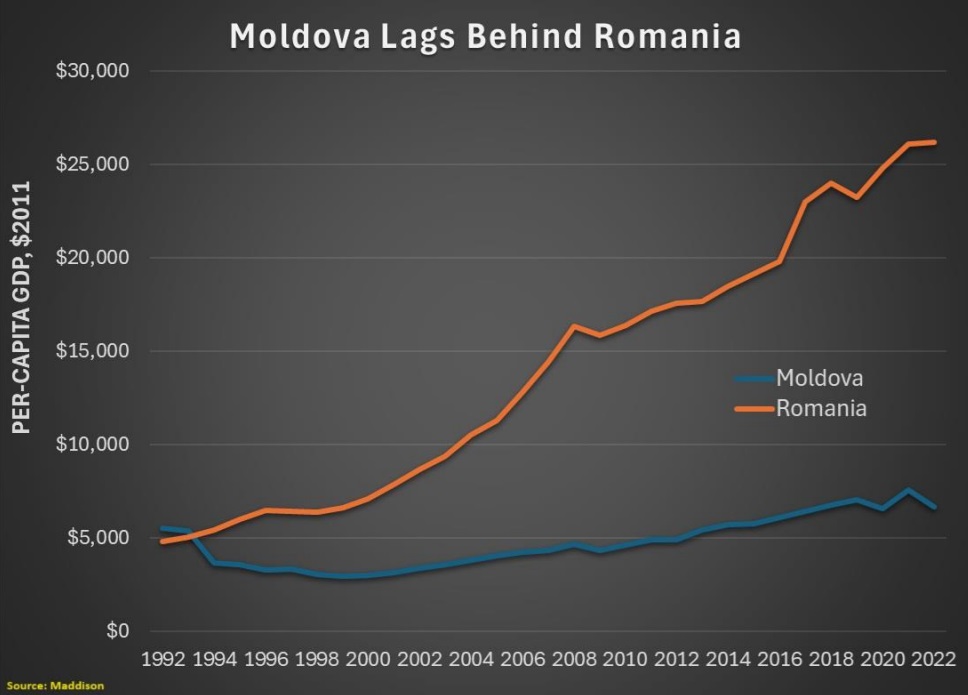August 28, 2024 by Dan Mitchell @ International Liberty
When debating my left-leaning friends about economic policy, I often hit them with my “never-answered question” by asking them to name any country, at any point in history, that became rich with big government.
They usually evade the question, though some of them mistakenly mention countries such as China (definitely not rich) or Sweden (became rich before big government).
I now have a corollary. Here’s another never-answered question.
I’m focusing on this issue today because the Center for Freedom and Prosperity has just issued a report on foreign aid.
Supporters of these handouts generally argue that giving money to poor governments will help them climb out of poverty.
In the paper, I explain the evidence is overwhelming that foreign aid does not achieve this goal.
…most arguments for foreign aid are based on the theory that donor nations can jump-start growth in the developing world with smartly targeted aid. …Skeptics…argue that foreign aid is wrong in theory since it focuses on giving money to governments rather than the policy reforms that would boost growth. And they argue that foreign aid has failed the real-world test since countries receiving large transfers have not climbed out of poverty. …the question is whether any foreign aid spending passes a cost-benefit test. …
There is no evidence that foreign aid has ever turned a poor country into a rich country. Indeed, it is much more likely that foreign aid undermines economic development by giving politicians in recipient nations an excuse to delay or avoid needed reforms. …we can say, with full confidence, …that poor countries have received about $4 trillion of aid since 1960 and none of them escaped poverty as a result. Aid has been a total failure. There are a few success stories in the post-World War II era, but they all got rich with good policy.
In the paper, I have a list of the jurisdictions that have received the most aid over the past 60-plus years.
I then augment that data by showing how those places rank in terms of per-capita GDP.
Here’s how I summarize these findings.
The results are damning. Every one of the top 20 aid recipients is in the bottom half of the world. In most cases, the big aid recipients are in the bottom 10 percent or bottom 20 percent of the world. Some of these nations suffer from political instability or military conflict, so it would be a big exaggeration to claim in some instances that foreign aid is the cause of a jurisdiction’s poverty. Moreover, these numbers are not adjusted for population. So even though India has received about twice as much aid as Mozambique over the past six decades, it has a population of more than 1.4 billion, dwarfing Mozambique’s 35 million. That being said, adjusting aid numbers for population does not change the conclusion. Nations that receive lots of aid have dismal economic outcomes.
My CF&P study contains several specific case studies (Asian Tigers, Chile, Botswana, etc), but let’s focus on Moldova.
In the report, I note that Moldova has received much more foreign aid, on a per-capita basis, than Romania.
So why, then, has Moldova languished while Romania has enjoyed decent growth?
My study gives the answer.
According to the World Bank data, Moldova has received more than $7.8 billion of aid over the past three decades, making it one of the world’s biggest recipients on a per-capita basis. Romania, however, has only received $5.6 billion. And since Romania has 19 million people compared to 2.5 million in Moldova, per-capita handouts to Moldova have been immensely larger. …Has all that aid helped Moldova grow faster than Romania? No. Has all that aid helped Moldova keep pace with Romania? No. In all likelihood, the handouts to Moldova have led to less growth. Why? Because politicians have less incentive to fix problems when they can simply put their hands out for freebies.
By the way, I have written about whether Moldova might have achieved good results if aid was linked to pro-market reforms.
That might be a good idea in theory, but it seems that donor nations (including the United States) never try – or never succeed – in doing that.
I’ll close by acknowledging that there are persuasive arguments for foreign aid. During a war, earthquake, or famine, aid can save lives. Also, aid can be a way of bribing nations to be on the right side when dealing with geopolitical rivalries.
But nobody should delude themselves into believing that foreign aid can help a poor country climb out of poverty. There’s only one tried-and-true recipe for becoming prosperous.
P.S. The Marshall Plan was not a success, at least if the goal was Western Europe’s economic rejuvenation.



No comments:
Post a Comment